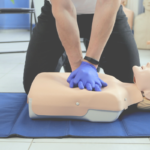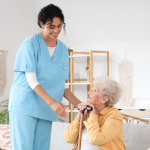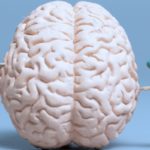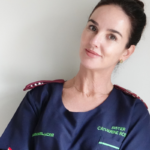As we bask in the warmth of spring and witness the beauty of nature’s renewal, let’s delve into a topic just as fascinating and vital for our little ones’ well-being – the microbiome.
This month, we explore the incredible world of microorganisms that inhabit our children’s bodies and the profound impact they have on their health and development.
The Microbiome: A Hidden Ecosystem within Us
Imagine a bustling ecosystem that’s not visible to the naked eye – that’s the microbiome! The microbiome is a collection of trillions of microorganisms, including bacteria, viruses, and fungi, that reside in and on our bodies. It acts as a delicate balance, influencing various aspects of our health, from digestion and immune function to mental well-being.
Early Development and the Microbiome
Did you know that a child’s microbiome begins to form even before birth? During the birthing process, the baby is exposed to the mother’s microbiota, laying the foundation for a healthy microbial community. Early life experiences, such as breastfeeding and exposure to different environments, further shape this complex ecosystem.
Breastfeeding and Microbiome Health
Breast milk isn’t just nourishment – it’s a powerful elixir that supports the growth of beneficial bacteria in your baby’s gut. The prebiotics present in breast milk serve as a feast for these microbes, promoting a diverse and robust microbiome. Breastfeeding can contribute to a stronger immune system, reduced risk of allergies, and better digestion.
Diverse Diet, Diverse Microbes
Introducing a variety of foods as your child grows helps diversify their microbiome. A diet rich in fruits, vegetables, whole grains, and probiotic-rich foods supports the growth of beneficial bacteria. Encourage your little ones to explore different flavours and textures, as this culinary adventure is not only delightful but also beneficial for their gut health.
Microbiome and Immune System
The microbiome plays a significant role in training and modulating the immune system. A well-balanced microbiome helps educate the immune system, distinguishing between harmful invaders and beneficial microbes. A strong immune response and reduced risk of infections are among the many benefits of a healthy microbiome.
Creating Microbiome-Friendly Environments
Beyond diet, the environment also influences the microbiome. Spending time outdoors, playing in the dirt, and interacting with pets can expose children to diverse microorganisms. While maintaining cleanliness is important, a certain level of exposure to germs can actually contribute to a stronger and more resilient immune system.
Learning More About the Microbiome
Take the time to explore the fascinating world of the microbiome. Understanding its role in your child’s health can empower you to make informed choices that support their overall well-being.
Remember, a flourishing microbiome sets the stage for a healthy and thriving future. Here’s to nurturing our children’s microbial companions and cultivating a springtime of robust health!

Pre-School to High School CPR and First Aid Courses
Pre-School to High School CPR and First Aid Courses Ensure the safety of young lives with our comprehensive CPR and First Aid Course. This vital training is tailored to the unique needs of Preschool, Primary School, and High School staff, empowering them to respond effectively to accidents and medical emergencies.

Safe Administration and Storage Of Medications In Schools
Safe Administration and Storage Of Medications In Schools Course This course is tailor-made for the school setting, educators and affiliated staff. You will also learn how to handle certain emergency situations as well as life saving CPR skills. This course is a must for all schools. Enrol now to gain

Level 1 First Aid Course
Level 1 First Aid Course Any workplace with more than ten employees must have a trained first aider and first aid supplies on the premises, according to the Occupational Health and Safety Act. We offer you a First Aid accredited Course. Course Cost accredited by HWSETA and aligned to Unit

Caregiver Course
Caregiver Course Are you passionate about helping others? Our Caregiver Course equips you with the skills and knowledge needed to provide compassionate care to a diverse range of individuals, including babies, the elderly, patients with Alzheimer’s or dementia, the terminally ill, paraplegic individuals, stroke survivors, and so much more. Course

The Importance of learning First Aid if your child has a brain injury
As parents, our greatest wish is to provide our children with a safe and nurturing environment, ensuring they have the opportunities and care we may not have experienced ourselves. We navigate through their milestones, holding their hands as they learn to walk, climb, and explore the world around them. However,

The Importance of Learning CPR and First Aid for Teenagers
As parents, learning CPR and first aid is not just about personal readiness; it’s a powerful tool in ensuring the safety and well-being of our adolescent children. Here’s why it’s crucial for parents to acquire these life-saving skills for their teenage children. Sister Catherine writes about the importance of learning

From witnessing a lot of trauma in my work to empowering parents
I want to take you on a journey that led me to become a full-time CPR and first aid instructor and proud business owner of Survival CPR. This story is about passion, empowerment, and making a real difference in the lives of people like you. A Trauma-Fueled Calling: Having spent

The Role of the Microbiome in Children
As we bask in the warmth of spring and witness the beauty of nature’s renewal, let’s delve into a topic just as fascinating and vital for our little ones’ well-being – the microbiome. This month, we explore the incredible world of microorganisms that inhabit our children’s bodies and the profound

World Breastfeeding Week
World Breastfeeding Week: Celebrating the Benefits for South African Families As we embrace the month of August, we joyfully celebrate the significance of family and the well-being of our precious little ones. In this blog post, we highlight the importance of World Breastfeeding Week, a cherished event that takes place


